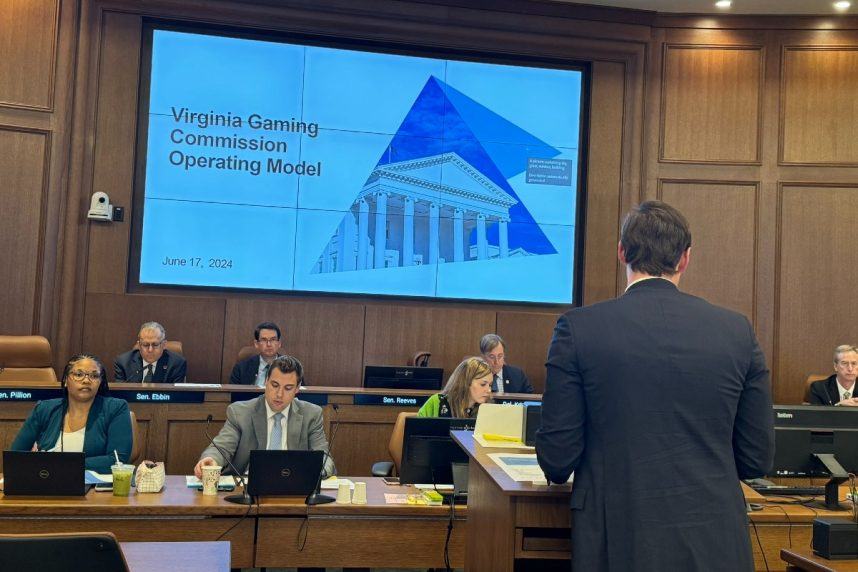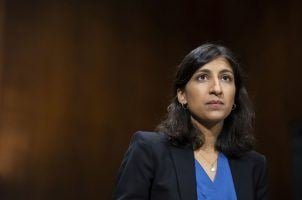Virginia Lawmakers Mull Formation of Gaming Commission Following Expansion
Posted on: August 22, 2024, 11:35h.
Last updated on: August 22, 2024, 11:50h.
Virginia lawmakers in Richmond continue to study whether the commonwealth should form an agency dedicated to the regulation of commercial gaming.

Virginia has expanded gambling considerably in recent years to include up to five brick-and-mortar casinos with slot machines, live dealer table games, and sports betting. Virginia is also now home to online sports betting and slot-like historical horse racing machines that operate in parimutuel wagering facilities.
The Virginia Lottery oversees lottery gaming, casino activity, and retail and mobile sports betting. The Virginia Racing Commission regulates HHR gaming, horse racing, and parimutuel wagering.
A joint subcommittee of the Virginia General Assembly remains reviewing the feasibility of establishing a commercial gaming regulatory, which would be named the Virginia Gaming Commission. The body would regulate casino gambling, online sports betting, HHR wagering, and parimutuel facilities. The Virginia Lottery would return to only governing lottery operations.
The joint subcommittee is expected to make its recommendations to the General Assembly in January.
Consultant Recommends Formation
During the joint subcommittee’s meeting on Wednesday, Brianne Doura-Schawohl, a consultant with her boutique Doura-Schawohl Consulting, LLC, recommended to the bipartisan panel to set aside funding for the establishment of the Virginia Gaming Commission. Doura-Schawohl said a central gaming regulatory agency is best at providing consumer protections, governing operators, and ensuring that the societal harms of expanded gaming are minimalized.
Doura-Schawohl said Virginia has an obligation to direct a percentage of its gaming tax for the research, prevention, treatment, and recovery of problem gambling.
The most comprehensive model to mitigate risk and reduce harm is a bifurcated approach between the state health agency and one central gaming regulatory agency,” Doura-Schawohl said. “The regulatory should be empowered to require and enforce stringent consumer protection provisions as part of licensure.”
Virginia, once among the most limited gaming states, is poised to become a big player in the US casino industry as retail casino resorts open across the commonwealth.
In January 2023, Rivers Casino Portsmouth became the first permanent casino to open in Virginia. Larger casino resorts are soon opening in Danville and Bristol.
Caesars Entertainment plans to open its $750 million integrated resort Caesars Virginia in Danville before the year’s end. Hard Rock International plans to open the $550 million Hard Rock Hotel & Casino Bristol this fall or winter.
Petersburg voters will decide whether to authorize a $1.4 billion mixed-use complex with an integrated resort casino this November. And the Pamunkey Indian Tribe continues to move forward with a more than $500 million casino project in Norfolk.
Churchill’s Opposition
Churchill Downs, Inc., which operates HHR machines in Virginia and is building The Rose Gaming Resort, a $460 million development, in Dumfries, is opposed to putting parimutuel wagering regulation under the scope of the proposed Virginia Gaming Commission.
Churchill, which also owns and operates the Colonial Downs Racetrack in New Kent, says other states that have moved parimutuel wagering regulation from a racing commission to a gaming commission have seen allocations to horsemen decline. The Kentucky-based company pointed to Michigan where in 1997 the Michigan Racing Commission merged with the newly formed Michigan Gaming Control Board.
Michigan’s once vibrant thoroughbred industry went from running over 1,000 races for $9 million in purses (2003) to ceasing thoroughbred racing,” Churchill’s presentation to the joint subcommittee detailed. “In 2003, there were 375 thoroughbreds foaled in Michigan and in 2022 there were four.”
Michigan’s final racetrack, Northville Downs, closed earlier this year bringing an end to Michigan’s horse racing industry.
“Given the nuances of parimutuel wagering, live horse racing, simulcast wagering, and advanced deposit wagering, Churchill Downs believes the oversight of historical and live horse racing should remain at the Virginia Racing Commission,” the company concluded.
Related News Articles
Long Island Residents Launch Petition Against Sands Casino Plan
Mets Owner Steve Cohen Promises $1B if Queens Casino is Approved
Most Popular
Sphere Threat Prompts Dolan to End Oak View Agreement
MGM Springfield Casino Evacuated Following Weekend Blaze
This Pizza & Wings Costs $653 at Allegiant VIP Box in Vegas!
Atlantic City Casinos Experience Haunting October as Gaming Win Falls 8.5%
Most Commented
-
VEGAS MYTHS RE-BUSTED: Casinos Pump in Extra Oxygen
— November 15, 2024 — 4 Comments -
VEGAS MYTHS RE-BUSTED: The Final Resting Place of Whiskey Pete
— October 25, 2024 — 3 Comments -
Chukchansi Gold Casino Hit with Protests Against Disenrollment
— October 21, 2024 — 3 Comments
















No comments yet